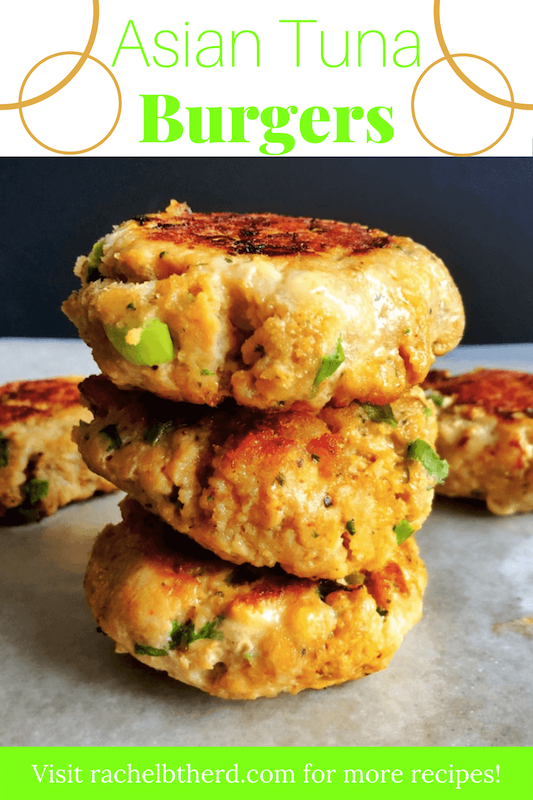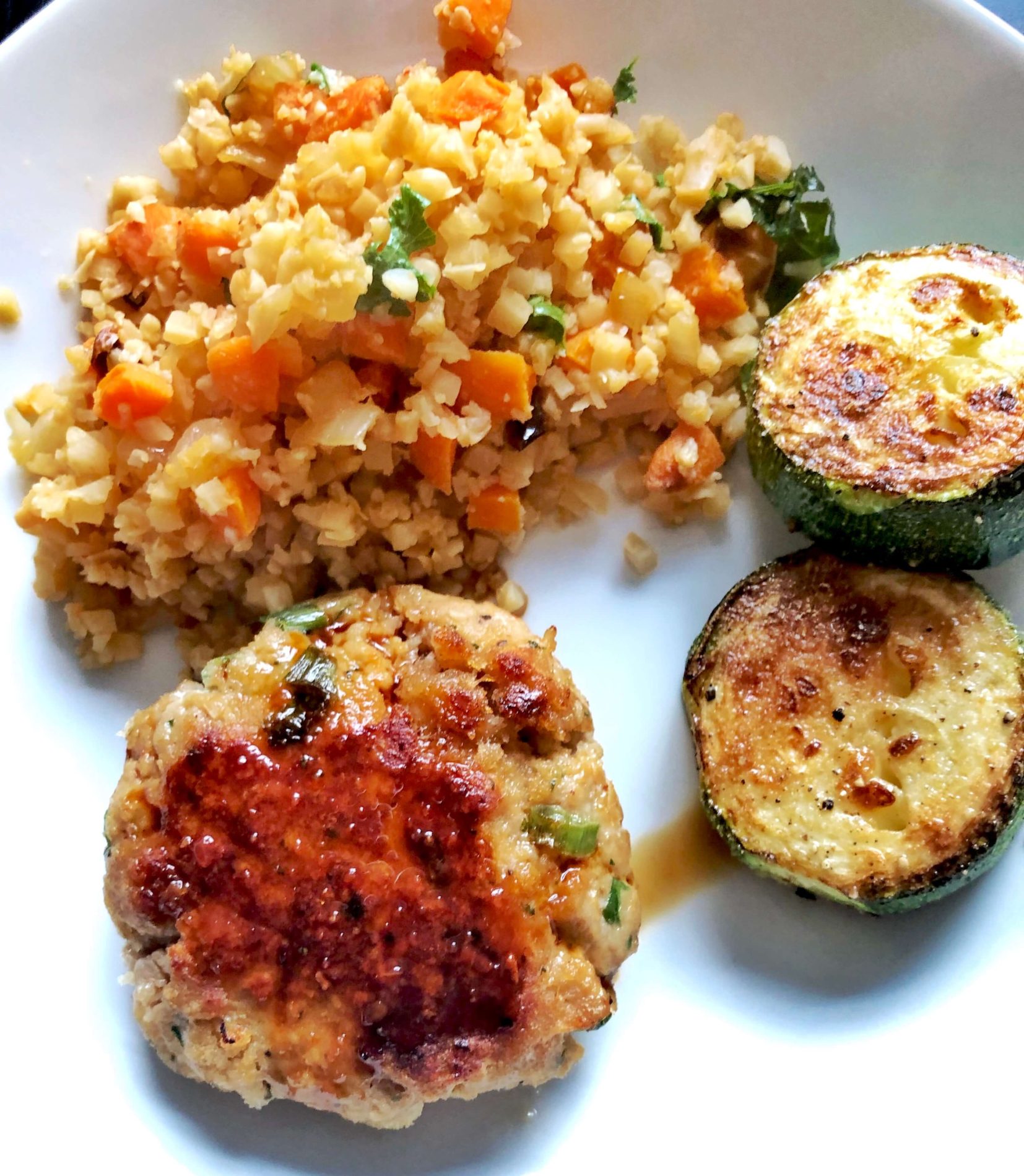Enjoy the taste and health benefits of fish with these easy to make Asian tuna burgers!
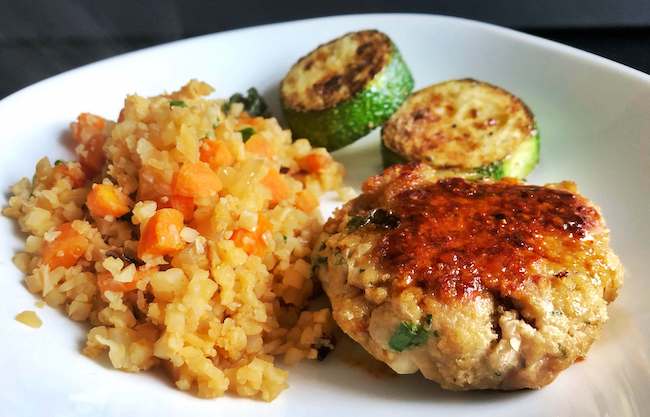
Tired of the same old burgers? These Asian tuna burgers will become your go-to burger when you want a break from the traditional beef patty. They’re delicious, and a great way to incorporate more fish in your diet (along with all the added health benefits that come from eating fish).
My family was so accustomed to a typical beef burger that they were hesitant to try these when I first made them. After the first bite, any uncertainty disappeared. They were blown away by the flavor and the meaty texture, which is similar to a beef burger. Now, these Asian tuna burgers have made it into their regular recipe rotation.
While this is definitely not traditional Asian fare, these Asian tuna burgers are inspired by traditional Asian ingredients. Fresh tuna is infused with ginger, garlic, soy sauce, and scallions to create an irresistible mix of flavors!
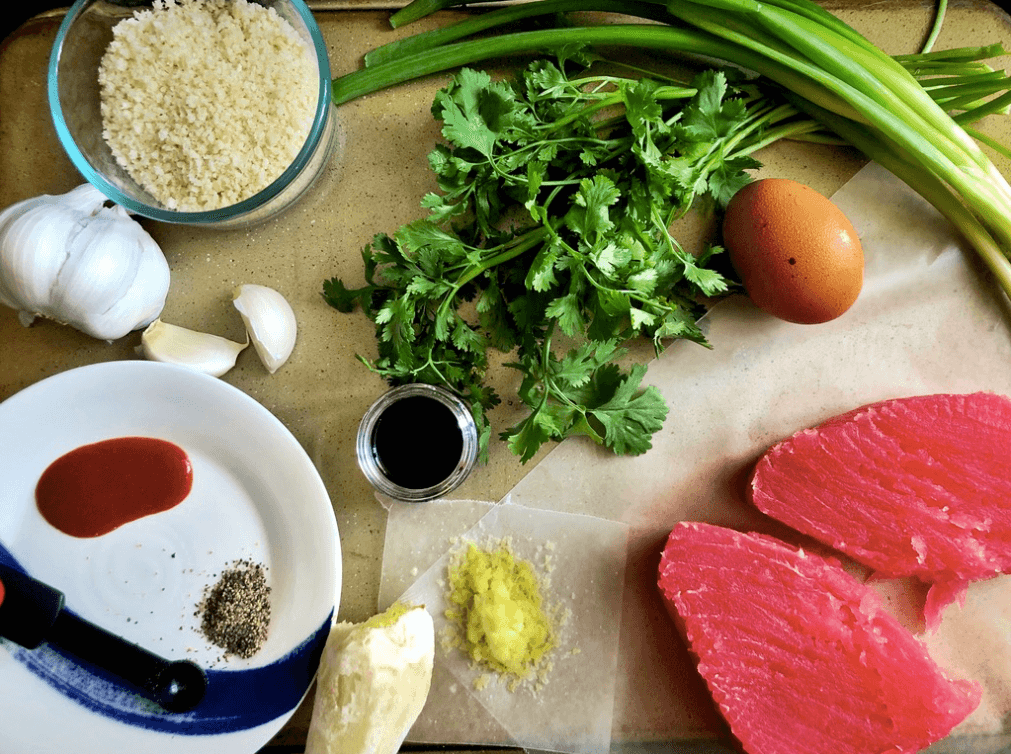
What ingredients go into these Asian Tuna Burgers?
- Fresh tuna
- Ginger
- Garlic
- Scallions
- Soy sauce
- Sriracha
- Egg
- Cilantro
- Panko breadcrumbs
Fresh tuna vs canned
I will be honest, I have only made this recipe with fresh tuna steaks. I find canned tuna can be slightly fishy and provides a different consistency. However, many recipes use canned tuna. While fresh is more expensive than canned, I prefer the flavor and texture of fresh (or frozen) tuna steaks.
On the other hand, canned tuna can be stored in the pantry, so you’ll always have a quick meal on hand. It is also less expensive, convenient, and doesn’t have to be cooked. Also, be sure to buy canned tuna in water not oil, to reduce the amount of fat. In general, let affordability and availability guide your fish choice. Canned and fresh fish both provide essentially the same nutritional value.
Save this recipe!
Nutrition of tuna
From a nutrition standpoint, tuna is comparable to other healthy fish like salmon. Tuna is also low in calories, but packs a good amount of high quality protein into each serving. While low in overall fat, it’s a rich source of healthy omega-3 fatty acids. One of the primary benefits of omega-3 fatty acids is its potent anti-inflammatory properties, which can help alleviate inflammation in the body and reduce the risk of many diseases. In addition, tuna is a good source of potassium, B-vitamins, vitamin D, selenium, magnesium, iron, and phosphorus.
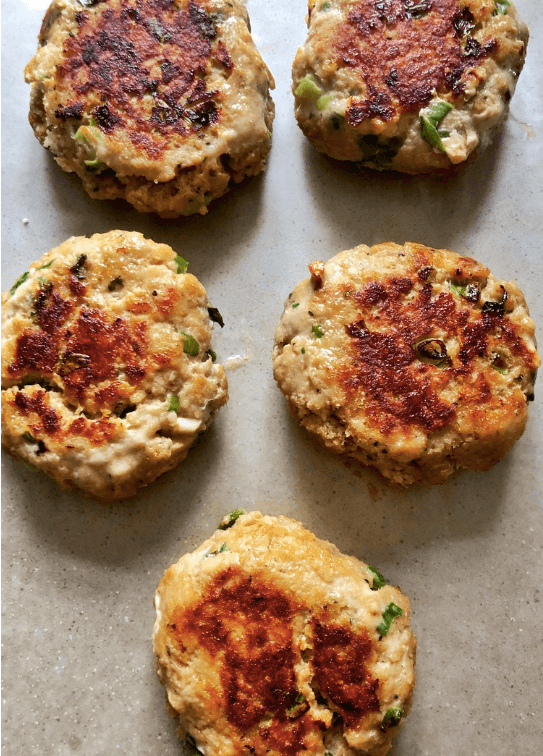
Can you eat too much tuna?
While there are many benefits of eating tuna, everyday consumption is generally not recommended. Similar to other large fish in the top levels of the ocean food chain, tuna can contain high levels of mercury. Fish with the highest level of mercury include:
- Swordfish
- King mackeral
- Tile fish
- Shark
- Orange roughy
- Marlin
- Tuna (Bigeye)
The FDA has a great chart for a guideline on fish.
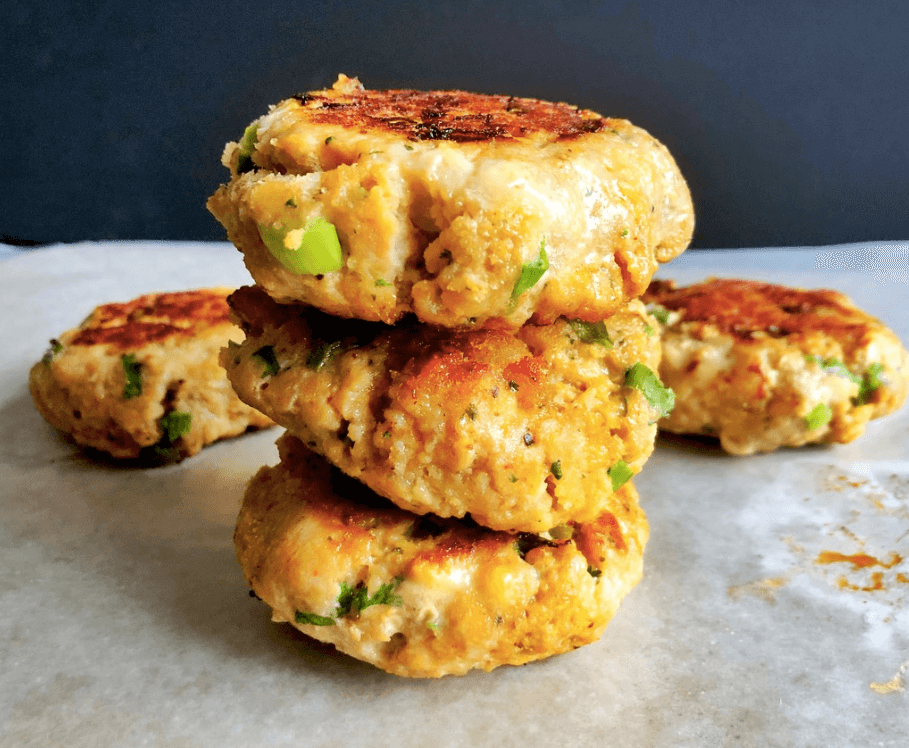
For some people, the small amounts in fish do not pose a health problem. However, high levels of mercury can be damaging to a child’s nervous system. This is why pregnant and breastfeeding women must be very careful about the amounts and types of fish they consume. Also, young children under the age of six should eat fish with low levels of mercury.
An interesting note: canned tuna has less mercury than fresh or frozen tuna steaks. This is because smaller fish, which accumulate less mercury, are canned. On the other hand, larger fish, which accumulate more mercury, are used for tuna steaks.
The bottom line
Tuna, like most things, can be a part of a healthy diet when eaten in moderation. The Dietary Guidelines recommends at least 8 ounces of seafood per week, which most Americans don’t meet. If you enjoy seafood more than 2-3 times per week be sure to choose a variety and limit the high mercury fish to once per week.
These Asian tuna burgers are a great way to get a serving of fish into your week. If tuna isn’t your fish of choice try my Asian Salmon Burgers.
Toppings
You can eat these tuna burgers on their own, or serve them on a bun for a more traditional burger style. Top with your favorite condiment. I like to mix a small amount of chili sauce in soy sauce. Other great options include: wasabi, horseradish, kimchi, a spicy mayo (or Greek yogurt), a hoisin mustard sauce and so much more.
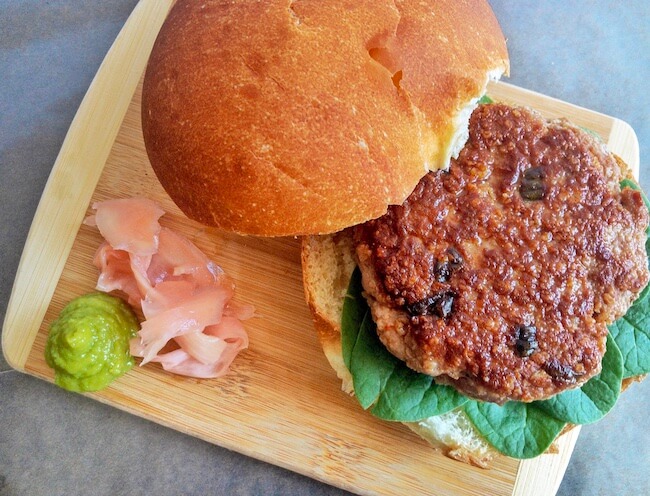
Leftovers
Leftover tuna burgers refrigerate well and can be eaten the next day (cold or reheated). Also, the burgers freeze well, uncooked and formed into patties. Which makes a convenient meal for another night.
Asian Tuna Burger
Ingredients
- 1 lb fresh tuna steak
- 1 Tablespoon fresh ginger peeled and grated
- 2 garlic cloves minced
- 1 ½ Tablespoons reduced sodium soy sauce
- 2 teaspoons Sriracha sauce
- 1 large egg
- ¼ tsp ground black pepper
- 1 Tablespoon fresh cilantro rinsed (optional)
- 3 Tablespoons green onion or scallions thinly sliced
- ½ cup panko bread crumbs
- 1 Tablespoon sesame oil
Instructions
- Cut tuna into large chunks and place in a food processor.
- Add next 6 ingredients to the food processor. If using the cilantro, add to the food processor as well. Pulse gently until the mixture is just combined (don't over process).
- Transfer tuna mixture to a large bowl. Stir in sliced green onions and panko breadcrumbs until well combined. *
- Line a plate with parchment paper. Shape the tuna mixture into five patties and place on the parchment.
- Meanwhile, heat a large skillet on medium-high heat, add sesame oil to lightly coat the pan. Once the pan is hot, gently lay burgers in skillet and cook until lightly browned on first side approximately 6-9 minutes. Flip burgers and continue to cook until golden brown on second side, 6-9 mins. Serve and enjoy!
Nutrition Facts
Other recipes you may enjoy:
- Asian Fried Rice
- Chicken Burgers with Spinach & Feta
- Lemon Garlic Marinated Chicken
- Chocolate Peanut Butter Nice Cream
If you have never had a tuna burger, you don’t know what you are missing out on, so give these Asian tuna burgers a try!
What’s your favorite seafood to eat? Share in the comments below. Also, be sure to stay in touch and follow me on Facebook, Instagram and Pinterest
Save this recipe now, make it later!
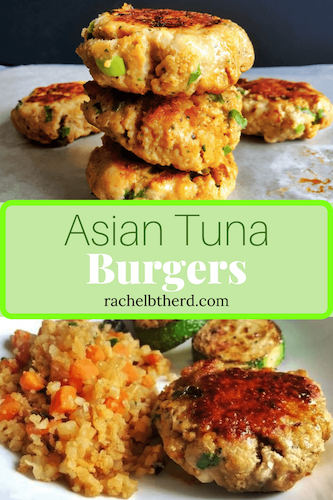
If you are not already following my blog, please subscribe to Rachel B the RD to have every new post delivered straight to your e-mail box! Sign up below!
